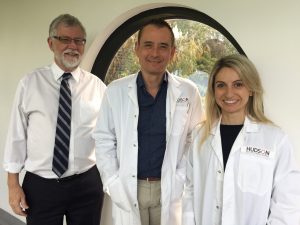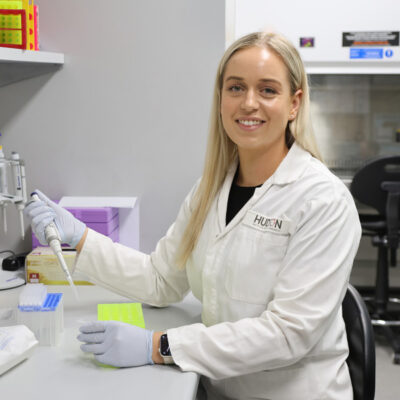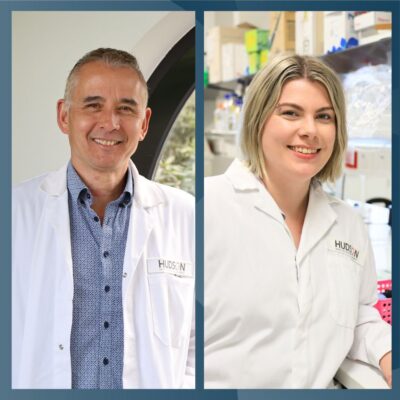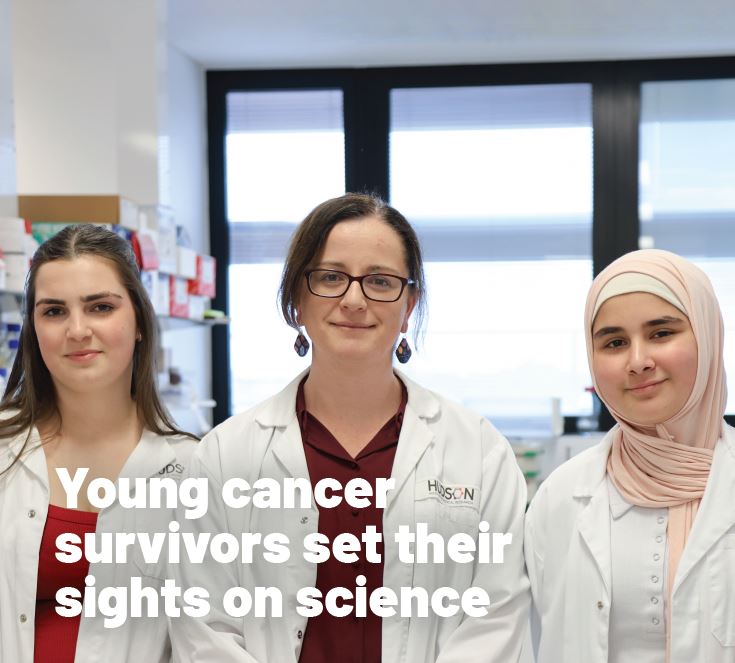Genetic mutation linked to ‘aggressive’ hormone-driven ovarian cancer
By Hudson Institute communications
A new study has identified a genetic mutation that could be linked to an aggressive type of ovarian cancer driven by hormones.

A team of scientists at Hudson Institute of Medical Research, with collaborators at the Peter MacCallum Cancer Centre and the University of Western Australia, used large-scale genome sequencing to map the tumour genome of adult granulosa cell tumours of the ovary.
The results of the study by a team including Maria Alexiadis, Dr Simon Chu, Dr Dilys Leung and Professor Peter Fuller, at Hudson Institute have been published in the American Association of Cancer Research journal, Molecular Cancer Research.
Adult granulosa cell tumors of the ovary (aGCT) are uncommon, affecting approximately five per cent of all women diagnosed with ovarian cancer.
“Fortunately, unlike many other types of ovarian cancer, the majority of aGCT are diagnosed at a stage when they can still be cured by surgery, however women presenting with high-stage disease, or a recurrence, are more likely to succumb to the disease,” Ms Alexiadis said.
Using tissue samples from women with ovarian cancer, the team ran genetic sequencing to identify which genes, or genetic mutations, were driving the aggressive or recurrent tumours.
The team found that a key genetic mutation in the telomerase gene, TERT -124C>T promoter, was present in around 40 per cent of tissue samples from women with aggressive disease, suggesting it was likely to play a role in the development of advanced stage disease.
“Further studies are needed to determine whether this TERT promoter mutation could be used as a clinical biomarker to predict women who may experience recurrence or aggressive disease,” Ms Alexiadis says.
Team | Maria Alexiadis, Peter Fuller, Simon Chu and Dilys TH Leung (Hudson Institute of Medical Research) Ian G Campbell, Simone M Rowley and Kaushalya C Amarasinghe (Peter MacCallum Cancer Centre) Colin JR Stewart (University of Western Australia).
This work is supported by the Ovarian Cancer Research Foundation (OCRF), Cancer Council Victoria, the Granulosa Cell Tumor of the Ovary Foundation; the National Health and Medical Research Council of Australia and the Endocrine Society of Australia.
About Hudson Institute
Hudson Institute’ s research programs deliver in three areas of medical need – inflammation, cancer, women’s and newborn health. More
Hudson News
Get the inside view on discoveries and patient stories
“Thank you Hudson Institute researchers. Your work brings such hope to all women with ovarian cancer knowing that potentially women in the future won't have to go through what we have!”






